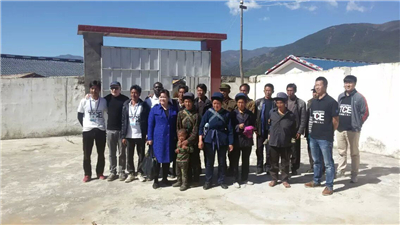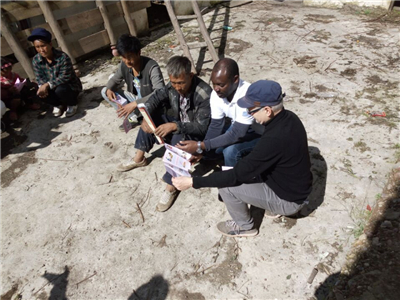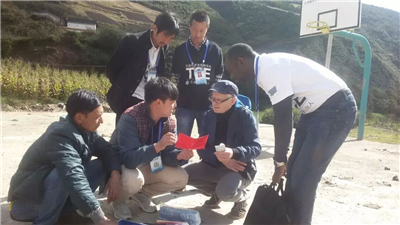Home \ Project News \ Women capacity build training in Butuo
Butuo County, Liangshan Yi Autonomous Prefecture, Sichuan Province, is one of the areas with the highest HIV infection rate in China. Since 2010, HPPC has already fought against HIV/AIDS with local people hand in hand. In 2014, HPPC successfully solicited funds from the Delegation of the European Union to China and Mongolia and cooperated with HPP Baltic to start this 3 year TCE project. Butuo Women’s Federation and Women and Children Development Center for Yi Ethnic Group in Liangshan are the main local counterparts.
The project covers 100,000 people of 17 townships in Butuo. 23 local field officers are employed and they are supervised by project leader and deputy project leader. They are regularly trained by HPP. They visit the households and provide counseling services about HIV/AIDS prevention and control, mobilize people to receive HIV test, promote condom use and provide condoms for free. People in Women’s Federation and cadres of village committee at county, township and village level are mobilized as project activist and they help to expand project impact.
The key population in this project are women. We mobilize pregnant women to do antenatal test and hospital delivery to reduce MTCT. Trainings are also provided to increase women’s awareness of knowing themselves and help with their capacity building.
Mr. Julius Norvila from HPP Baltic came to Butuo to visit the project last week. On October 19, Mr. Norvila had a discussion meeting in Butuo Women’s Federation. Participants were Zhang Xiuying, deputy director of Women’s Federation, Siri Holmebakk, Project Director of HPPC PMO, Li Jiancai, project manager, PMO staff, Special Forces, field officers, representatives of key people and activists.
During the meeting, Mr. Norvila shared what he saw and heard from the visit. He visited the household with field officers. He learned how they worked, and how they educated and explained HIV/AIDS knowledge. He saw that they needed to work very hard. During busy time, they often had to provide the knowledge while the farmers were doing field work. Mr. Norvila also discussed with key women and activists. He tested women’s capacity indirectly and learned about their HIV/AIDS knowledge level. Project sustainability was also discussed. When being asked after the project completed, would they continue to play their role as key women and activist, would they continue to provide knowledge in their villages and expand the impact? Their answer was that they wish TCE project could be implemented forever. In the mean time, they said they would like to continue to play their role and enable their villages to become better and better. Mr. Norvila also asked what support they needed, the answered that they would like to know more national policies about PLHIV, and knowledge about diseased such as hepatitis B, syphilis and TB.
Zhang Xiuying, Deputy Director of Women’s Federation expressed her gratitude to Mr. Norvila for coming to supervise and evaluate the project all the way from Lithuania which was far away from China. For the TCE project, we could see that farmers had changed a lot. The main thing was that men and women could sit together to discuss HIV/AIDS and sexual related knowledge. They did not withdraw from this situation. Premarital check-up was also a significant breakthrough. Women’s self protection awareness was very high through our education. Although the project made some achievements, there were still many problems which needed to be solved. Such as degradation of labor force in PLHIV families. Their life was difficult and we needed to consider about how to provide assistance to them, and enable them to live a normal life through self-help activities and medication.
(This publication has been produced with the assistance of the European Union. The contents of this publication are the sole responsibility of Humana People to People Baltic and can in no way be taken to reflect the views of the European Union.)





